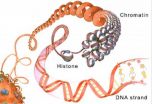(Press-News.org) Although maintaining good blood sugar control is crucial for avoiding complications of diabetes, it has been estimated that only about half of patients are successful in meeting target blood glucose levels. The prevalence of depression among diabetes patients – up to twice as high as in the general population – can interfere with patients' ability to manage their diabetes. Now a group of Massachusetts General Hospital (MGH) investigators report that a program of cognitive behavioral therapy that addresses both mood and diabetes self-care led to improved blood sugar control and produced faster relief of depression in patients with poorly-controlled type 2 diabetes.
"The association between depression and type 2 diabetes is well documented, but clinical trials of either medication or psychological treatment for depression have had mixed or negative effects on adherence to treatment programs," says Steven Safren, PhD, ABPP, director of Behavioral Medicine in the MGH Department of Psychiatry and lead author of the report in the March issue of Diabetes Care. "In this study we adapted our approach that has improved treatment adherence among HIV/AIDS patients by addressing both depression and treatment self-management skills."
The current study enrolled 87 adults whose type 2 diabetes was poorly controlled despite treatment with oral medications and who also met criteria for a diagnosis of depression. At the outset of the trial, all participants received an enhanced version of usual diabetes self-care counseling – including meetings with a nurse educator to set goals for blood sugar monitoring, with a dietitian to set dietary and exercise goals, and with a counselor to set strategies for meeting those goals and other medical recommendations.
A subgroup of 45 randomly selected participants took part in 9 to 12 additional weekly cognitive behavioral therapy (CBT) sessions where they worked on problem-solving strategies, reviewed how well they met goals of the previous week and tracked their moods. While the sessions included typical aspects of CBT for depression – such as training in adaptive thinking, relaxation and activity scheduling – they also focused on specific elements of diabetes self-care.
Throughout the year-long study period, participants in both groups continued any previously prescribed depression treatment; but if symptoms were found to have worsened at assessment visits, they were referred for additional therapy or adjustments to antidepressant medication. Participants' adherence to their prescribed diabetes medication was tracked by an electronic monitoring system that recorded whenever the pill bottle was opened, and their adherence to glucose monitoring, by data downloaded from the monitor.
At the end of the first four months, participants receiving the integrated CBT treatment were significantly more successful than the usual-treatment group in adhering to their prescribed medications and their glucose monitoring schedule. They also showed an improvement in blood sugar control similar to what might be seen with the addition of a weak glucose-lowering medication. These differences in diabetes management and glucose control were also seen at the 8- and 12-month assessments.
While the CBT group had more rapid improvement of their depression symptoms, scoring significantly better on two depression scales at the 4-month assessment, depression symptoms in the usual-treatment group had improved by the 8- and 12-month assessments, removing any statistically significant differences between the groups at the end of the study period. It is possible, Safren notes, that participants in the usual-treatment group were more likely to be referred for additional depression treatment after the 4-month assessment, since they were less likely to show improvement at that visit.
"We are hopeful that this approach can be helpful in treating any medical illness in which patients also have depression," he says. "We need to study extending this treatment to other conditions, as well as finding the best ways to incorporate it into diabetes care. With today's emphasis on cost containment in health care, it will be important to know if the improved blood sugar control this treatment appears to confer makes it more cost effective over the long run." Safren is a professor of Psychology in the Harvard Medical School Department of Psychiatry.
INFORMATION:
Additional co-authors of the Diabetes Care report are Christina Psaros, PhD, Aaron Blashill, PhD, and Aleksandra Margolina, Behavioral Medicine Service/MGH Psychiatry; Deborah Wexler, MD, Linda Delahanty, MS, RD, and Enrico Cagliero, MD, MGH Diabetes Center; and Jeffrey Gonzalez, PhD, Albert Einstein College of Medicine. The study was primarily supported by National Institute of Mental Health grant R01-MH-078571, with additional support through Catalyst, the Harvard Clinical and Translational Science Center.
Massachusetts General Hospital, founded in 1811, is the original and largest teaching hospital of Harvard Medical School. The MGH conducts the largest hospital-based research program in the United States, with an annual research budget of more than $775 million and major research centers in AIDS, cardiovascular research, cancer, computational and integrative biology, cutaneous biology, human genetics, medical imaging, neurodegenerative disorders, regenerative medicine, reproductive biology, systems biology, transplantation biology and photomedicine.
Specialized cognitive therapy improves blood sugar control in depressed diabetes patients
Addressing participants' moods and their treatment management skills may bring faster relief of depression symptoms
2014-02-24
ELSE PRESS RELEASES FROM THIS DATE:
Almost 200 new species of parasitoid wasps named after local parataxonomists in Costa Rica
2014-02-24
An inventory of wild-caught caterpillars, its food plants and parasitoids, has been going on for more than 34 years in Area de Conservación Guanacaste (ACG), a protected area of approximately 1200 km2 in northwestern Costa Rica. As a result, more than 10,000 species of moths and butterflies are estimated to live in ACG. Their caterpillars are in turn attacked by many parasitoid wasps, also numbering thousands of species. However, most of those wasps have never been described and remain unknown.
For the past few years researchers from Canada, Costa Rica and the United ...
New technology detect cellular memory
2014-02-24
Cells in our body are constantly dividing to maintain our body functions. At each division, our DNA code and a whole machinery of supporting components has to be faithfully duplicated to maintain the cell's memory of its own identity. Researchers at BRIC, University of Copenhagen, have developed a new technology that has revealed the dynamic events of this duplication process and the secrets of cellular memory. The results are published in Nature Cell Biology.
In 2009, two women at BRIC, University of Copenhagen joined forces to develop a new technology that could elucidate ...
Researchers make the invisible visible
2014-02-24
The 2003 development of the so-called hyperpolarization technique by a Danish research was a groundbreaking moment that made it possible to see all the body's cells with the help of a new contrast agent for MRI scans. Researchers from Aarhus have now taken another big step towards understanding the body's cells and with it also the development of diseases:
"With the hyperpolarization method, sensitivity to specific contrast agents is up to 10,000 times higher than with a traditional MRI scanning. What we have now documented is that with the hyperpolarization MRI scanning ...
Team converts sugarcane to a cold-tolerant, oil-producing crop
2014-02-24
CHAMPAIGN, Ill. — A multi-institutional team reports that it can increase sugarcane's geographic range, boost its photosynthetic rate by 30 percent and turn it into an oil-producing crop for biodiesel production.
These are only the first steps in a bigger initiative that will turn sugarcane and sorghum – two of the most productive crop plants known – into even more productive, oil-generating plants.
The team will present its latest findings Tuesday (Feb. 25) at the U.S. Department of Energy's ARPA-E Energy Innovation Summit in Washington, D.C.
"Biodiesel is attractive ...
Pointing is infants' first communicative gesture
2014-02-24
VIDEO:
Catalan researchers have studied the acquisition and development of language in babies on the basis of the temporary coordination of gestures and speech. The results are the first in showing...
Click here for more information.
Catalan researchers have studied the acquisition and development of language in babies on the basis of the temporary coordination of gestures and speech. The results are the first in showing how and when they acquire the pattern of coordination ...
The chemistry of Sriracha: Hot sauce science
2014-02-24
WASHINGTON, Feb. 24, 2014 — Forget ketchup and mustard — Sriracha might be the world's new favorite condiment. Beloved by millions for its unique spicy, garlicky, slightly sweet flavor, the chemistry of "rooster sauce" is the subject of the American Chemical Society's latest Reactions video. The video is available at http://youtu.be/U2DJN0gnuI8.
INFORMATION:
Subscribe to the series at Reactions YouTube, and follow us on Twitter @ACSreactions to be the first to see our latest videos.
The American Chemical Society is a nonprofit organization chartered by the U.S. ...
Uninsured adolescents and young adults more likely to be diagnosed with advanced cancer
2014-02-24
ATLANTA – February 24, 2014 – A new American Cancer Society study shows that uninsured adolescents and young adults were far more likely to be diagnosed with late-stage cancer, which is more difficult and expensive to treat and more deadly, compared to young patients with health insurance. The study, published early online, will appear in the March issue of the journal CANCER.
The study's authors says their data suggest a way forward for cancer control efforts in the adolescent and young adult (AYA) population, a group that has benefited the least from recent progress ...
Creating animated characters outdoors
2014-02-24
This news release is available in German.
So far, film studios have had to put in huge amounts of effort to set monsters, superheroes, fairies or other virtual characters into real feature film scenes. Within the so-called motion capturing process, real actors wear skintight suits with markers on them. These suits reflect infrared light that is emitted and captured by special cameras. Subsequent to this, the movements of the actors are rendered with the aid of software into animated characters. The most popular example of this is "Gollum" from the film Lord of the ...
Nanotracer tester tells about wells
2014-02-24
A tabletop device invented at Rice University can tell how efficiently a nanoparticle would travel through a well and may provide a wealth of information for oil and gas producers.
The device gathers data on how tracers – microscopic particles that can be pumped into and recovered from wells – move through deep rock formations that have been opened by hydraulic fracturing.
Drilling companies use fracturing to pump oil and gas from previously unreachable reservoirs. Fluids are pumped into a wellbore under high pressure to fracture rocks, and materials called "proppants," ...
Study reveals new ways deadly squirrelpox is transmitted to red squirrels
2014-02-24
Native red squirrels have declined throughout Britain and Ireland for the last century due to a combination of habitat loss and the introduction of the North American eastern grey squirrel. But more recently its few remaining populations have been devastated by an insidious pox virus passed to them by the alien invaders.
A study by the biodiversity and conservation research centre Quercus at Queen's University Belfast (QUB), and published in the journal PLOS ONE, found the situation may be worse than previously thought as the disease appears to have multiple modes of ...
LAST 30 PRESS RELEASES:
Scientists discover why we know when to stop scratching an itch
A hidden reason inner ear cells die – and what it means for preventing hearing loss
Researchers discover how tuberculosis bacteria use a “stealth” mechanism to evade the immune system
New microscopy technique lets scientists see cells in unprecedented detail and color
Sometimes less is more: Scientists rethink how to pack medicine into tiny delivery capsules
Scientists build low-cost microscope to study living cells in zero gravity
The Biophysical Journal names Denis V. Titov the 2025 Paper of the Year-Early Career Investigator awardee
Scientists show how your body senses cold—and why menthol feels cool
Scientists deliver new molecule for getting DNA into cells
Study reveals insights about brain regions linked to OCD, informing potential treatments
Does ocean saltiness influence El Niño?
2026 Young Investigators: ONR celebrates new talent tackling warfighter challenges
Genetics help explain who gets the ‘telltale tingle’ from music, art and literature
Many Americans misunderstand medical aid in dying laws
Researchers publish landmark infectious disease study in ‘Science’
New NSF award supports innovative role-playing game approach to strengthening research security in academia
Kumar named to ACMA Emerging Leaders Program for 2026
AI language models could transform aquatic environmental risk assessment
New isotope tools reveal hidden pathways reshaping the global nitrogen cycle
Study reveals how antibiotic structure controls removal from water using biochar
Why chronic pain lasts longer in women: Immune cells offer clues
Toxic exposure creates epigenetic disease risk over 20 generations
More time spent on social media linked to steroid use intentions among boys and men
New study suggests a “kick it while it’s down” approach to cancer treatment could improve cure rates
Milken Institute, Ann Theodore Foundation launch new grant to support clinical trial for potential sarcoidosis treatment
New strategies boost effectiveness of CAR-NK therapy against cancer
Study: Adolescent cannabis use linked to doubling risk of psychotic and bipolar disorders
Invisible harms: drug-related deaths spike after hurricanes and tropical storms
Adolescent cannabis use and risk of psychotic, bipolar, depressive, and anxiety disorders
Anxiety, depression, and care barriers in adults with intellectual and developmental disabilities
[Press-News.org] Specialized cognitive therapy improves blood sugar control in depressed diabetes patientsAddressing participants' moods and their treatment management skills may bring faster relief of depression symptoms







